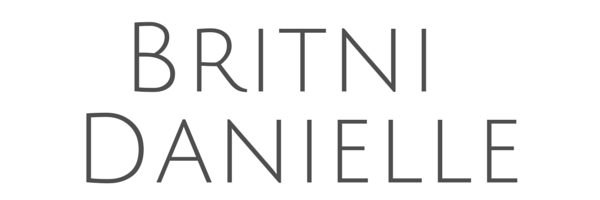Every day I get questions from new writers hoping to break into freelancing about how to get started. With so many writers and bloggers in the game, it can seem daunting to a newbie who’s looking to break into writing (especially for the web), but fret not, you can do it.
Although I’ve been writing since I could pick up a pencil and have two degrees writing, I didn’t get serious about writing professionally until 2010.
At the time I was firmly entrenched in my teaching gig (although I was hating it more and more), and I was a pretty avid blogger (although I blogged pretty much anonymously). Although I had a few paid writing assignments for Essence.com sharing my perspective on single parenting and teaching, I didn’t have any other (paid) clips to my name.
Back then I was beginning to think I’d missed my moment. I was approaching 30, I knew teaching wasn’t what I wanted to do, but I didn’t know how to go about making the switch and perusing my dream.
Then something clicked. I noticed that more of the folks I followed on Twitter were writing for online publications, namely Clutch, and I decided to follow in their footsteps. At the same time, I also noticed Bilal, the R&B singer, was getting ready to perform in L.A., and I decided to reach out and ask if I could interview him. To my surprise, he agreed, and I scored my first celebrity interview…ever.
Interviewing Bilal gave me a shot of confidence. I began wondering how I could pitch my interview to online publications. Using Aliya S. King’s pitching advice, I sent several emails to publications, only to get rejected.
I won’t lie; I was crushed. But I knew I had a few options: keep trying or give up and be miserable. I kept trying.
I carried a notebook, I thought of ideas, I mined my personal life for stories, I set out to interview other people, and I wrote pitch after pitch until one of them was finally accepted.
I was elated and turned in my first piece for Clutch back in August 2010. By October, I was on staff (while keeping my day job), and today, I regularly freelance for various publications both on and offline.
So, how can you break into freelancing and begin making money doing what you love?
I’ll tell you how I did it, but you should know, it might not be easy.
I spent months making $20 per article before I began to see an increase in my rate (and years before that, blogging for free). And while some might say that I lucked up on opportunities that may not be so available to others, I agree with Deepak Chopra when he says “good luck” is simply “preparedness and opportunity coming together.”
So, if you’re new to writing professionally and you want to know how you can start getting paid for your words, here’s my advice:
# 1 Start a blog
If you’re new to writing, you’ll need a way to show potential editors that you can string sentences together in a coherent way. Starting out, you don’t have to be dream hampton, Lord knows I’m not, but you do have to know how to convey your thoughts in ways that people can understand. Having a blog not only shows you can write well, but it also tells potential editors you can write consistently and have interesting ideas.
Additionally, growing your blog, cultivating your voice, and building your audience will help you make the case for why editors should give you a shot AND it will help you build your confidence as a writer.
# 2 Network with writers & editors
Despite what you may think, being a good writer isn’t always the most important aspect of breaking into the writing biz. More often than not, it’s about being on the radar of editors and other writers. I used to read other people’s work and know in my bones that I was stylistically and technically a better writer than they were, but because they were better networkers, they had connections I just couldn’t gain access to.
While you’re banging away trying to grow your blog, network (on and offline) with writers you enjoy reading and editors who work with publications you enjoy reading. When you end up pitching them ideas, they’ll be more receptive to reading them because they have a relationship with you.
{side note: Don’t just be a kiss ass and don’t just always ask questions. Interact with other writers and editors authentically. We’re people, too. Have real conversations, don’t bombard them with links to your blog, and don’t constantly try to pick their brain. You don’t want them to remember you for all of the wrong things!}
# 3 Write a kick ass pitch
After you’ve gotten on the radar of your favorite publication or know it so well you can anticipate what they’ll want to publish, the next step is the pitch. The pitch is what sells your idea to others and tells them why they should allow you to write it.
When I was starting out, I used Aliya S. King’s sample pitch (almost verbatim) to craft my first few pitches, and even though I got turned down, editors DID comment on how well written my pitches were. This is key. Even if your idea isn’t quite right at the time, they’ll know—by how well your pitch is written—whether or not you can write.
In your pitch, get to the heart of the matter, quickly. Put the most interesting information up front, and push the information about yourself to end of the pitch.
Above all else, proofread your pitch RELENTLESSLY. Nothing will kill your article idea faster than grammatical errors and typos.
[Want to see one of my pitches? Join the #GOALdiggers Facebook group and we’ll critique it together.]
# 4 Be consistent
Once you get on the radar of an editor and they’ve decided to give you a shot, DO NOT LET THEM DOWN. Don’t miss deadlines, don’t ask for extensions, and don’t psych yourself out and think that you’re not up to the task. You are.
Above all else, be professional, read the publication to gauge their tone (you should already know this, btw), and be yourself. Editors love to hear YOUR voice shine through, so don’t try to switch your style up just because they’ve agreed to publish your idea. If they’re not feeling it, they’ll let you know. Be open to suggestions.
No matter what advice you read or hear about how to break into writing (there’s a lot of out), each person’s experience will be different. My journey is my journey and yours will almost certainly be different. Glean whatever advice you can from others you trust, customize their tips to fit your needs, and just keep at it until you reach your goal.
Have more questions? Leave a comment and I’ll do my best to share my advice. Do you have a tip for newbies? Share!
#
Want to work one-on-one with me to improve your writing, craft pitches, and break into writing? Schedule a private session with me.
**ps: if you like this post, won’t you be a doll and share it? Facebook, Twitter, G+, etc. Thanks!


Awesome! Thanks for sharing!
Excellent post:) the tips are very good and easy to learn:)
Great tips!
No problem! Glad they were helpful. 🙂
Hey Britni, I just submitted a post on a similar theme for newbies…This is a great post. I just tweeted it. Thanks!
Thanks for the share Elana!
Thanks for this advice. I think my fear sometimes keeps me from trying. I know I have great ideas, I just have felt in the past that actually seeing my name on the site of a major publication (aside from local ones) was just too farfetched. Reading this article boosted my confidence and I’m going to submit a pitch this month.
Nice. I must admit I’ve freelanced and interned within the industry and never made a dime, lengthy articles at that so I started to believe that no one wanted to pay me and just continued focusing on my own blog. But of course, I love to write and being a contributor is simply amazing! This gave me the courage to just keep looking for work. Eventually someone will value my hard work!
Amber
Great post. The vast amount of competition between established freelancers and bloggers can definitely be intimidating. Thanks for the encouragement, and the reminder that it sometimes takes a lot of tries first.
Hi Danielle! Just want to say thank you for this. I think the writing world has changed so much in the last few years and people like you have a better understanding on how to navigate it. Your site is such a great resource and its definitely inspirational.
Thanks so much for reading! I’m glad the site has been helpful so far. Please let me know if you’d like me to tackle a specific topic (Tweet me? @BritniDWrites).
~Britni
I have read quite a few of your articles on Clutch. I am working toward becoming a freelance writer. And, now that I am committed to making that dream a reality, I am seeing things differently. I am compiling a list of magazine writers that I like and visiting their websites to glean wisdom, inspiration and motivation. You are one of those writers. I appreciate the tips that you have provided in this post. The tips are just what I needed today. Best, Valerie
Hey Valerie!
So glad you made it to my spot. I’m glad you were able to get something out of my piece. Let me know if you have questions, and if you haven’t already, meet us over in the #GOALdiggers group! http://www.facebook.com/groups/TheGOALdiggers/
Hello Britni,
Thank you for your response and invitation to your Facebook group. I must confess. I have a minor Facebook addiction. As part of my self imposed treatment plan, I have taken the month of October off from Facebook. I have been utilizing my Facebook free time to work on my pitches!
I did break my rule (momentary relapse), for two minutes to sign up for your facebook group. I will join the conversation next month. I feel like being part of a group will help me attain my writing goals. In the meantime, I have signed up to receive an email notification when you add a post to your blog.
Smiles,
Valerie
I know I am late in seeing this post. However, I believe that I am where I am suppose to be and I received this article along with your post “Yes, Dreams Do Come True” in perfect time. I just blogged a piece called, “I Want to Quit My Day Job!” a few days ago. I talk about giving myself 6 months of serious dedication and focus to see if I can get published in print or online. I happened to come across your stories in twitter and was inspired and encouraged. Thank you for this detailed piece about breaking into the career, it looks like I am on the right track.
Didn’t realize this was an old post-It was right on time for me! Loved the info for the pitch and will definitely be using it! 🙂
This is so great! I just sent a request for your FB group.
Great tips for a newbie like me! Straight to the point 🙂
I’m on it! I think being consistent is my main problem. Thanks for the pep talk, coach. 🙂
It was a well thought out trail for venturing into freelancing.It has enthused me to pick it up